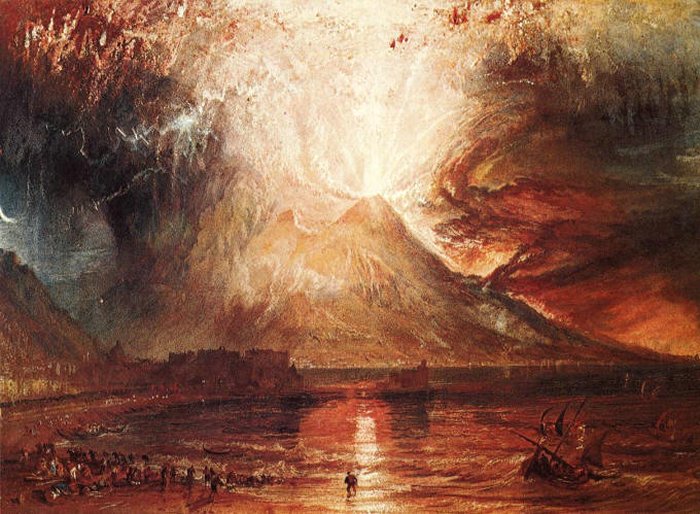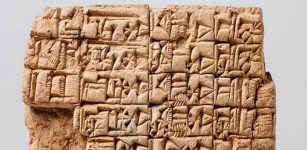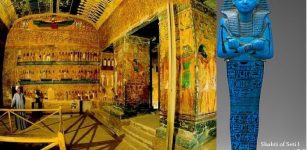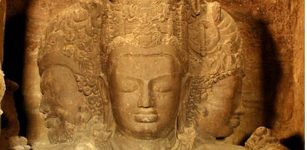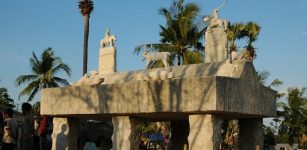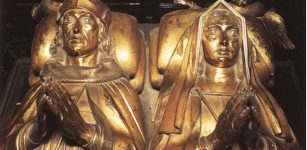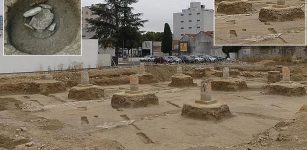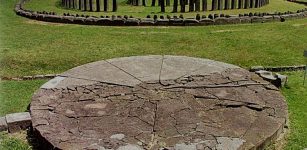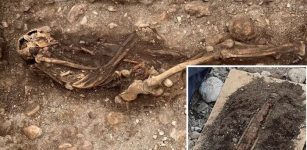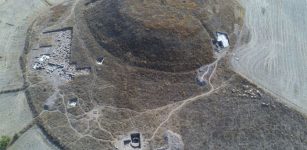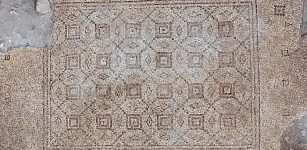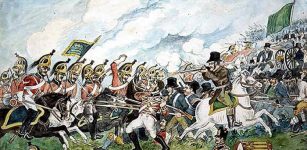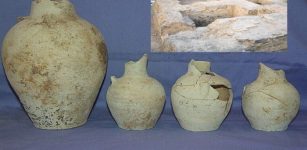Remarkably Well-Preserved Thermopolium With Frescoes, Food, And Jars Discovered In Pompeii
Jan Bartek - AncientPages.com - Excavations in Pompeii have never ended and for the first time ever archaeologists can report they have discovered an entire thermopolium.
Thermopolium, the word comes from the Greek “thermos” for hot and “poleo” to sell was an ancient Roman restaurant that offered its customers fast food. One could get warm meals, as well as drinks. People who were hungry could visit a thermopolium and get something to eat fast.
The find marks the first time archaeologists have excavated an entire thermopolium. Credit: Luigi Spina
When Mount Vesuvius erupted on the morning of August 24, 79 A.D. its great cloud of hot ash, stones, and poisonous gases completely buried the whole Roman city of Pompeii.
At the time of the destruction, Pompeii was a flourishing ancient city with magnificent houses, streets and shops, but now everything would remain lost, forgotten, sealed and preserved in a time capsule for more than seventeen centuries.
Archaeologists have not given up on Pompeii and in recent years there have been interesting discoveries that provide us with more historical information about life in this city before its destruction. In 2019, scientists in Pompeii discovered a 2,000-year-old well-preserved frescoed fast food counter used by the Romans, and now they have found yet another one.
The recently unearthed thermopolium of Regio V, located at a busy intersection of Silver Wedding Street and Alley of Balconies was the Roman-era equivalent of a fast-food snack stall.
Frescoes were found at the site. Credit: Luigi Spina
“Archaeologists found traces of nearly 2,000-year-old food in some of the deep terra cotta jars in the shop, including traces of pork, fish, snails and beef. The street vendor would have lowered the jars into the counter which contained circular holes,” Deutsche Welle reports. At the bottom of one jar, scientists found crushed beans which were used to modify the taste of wine.
"This is an extraordinary find. It's the first time we are excavating an entire thermopolium," Massimo Ossana, director of the Pompeii archaeological park said.
Mount Vesuvius destroyed the entire ancient Roman city of Pompeii in 79 A.D.
"Our preliminary analyses show that the figures drawn on the front of the counter, represent, at least in part, the food and drink that were sold there," said anthropologist Valeria Amoretti, adding that the discovery was a "testimony to the great variety of animal products used to prepare dishes."
At the site, scientists also found brightly colored frescoes, a decorated bronze drinking bowl, wine flasks, ceramic jars used for cooking soups and stews and amphora used for storing or transporting liquids.
The discovery of human remains near the snack shop, including those of a man in his 50s near a cot was somewhat surprising. It seems someone must have died near the thermopolium when Mount Vesuvius erupted.
See also: More Archaeology News
"The shop seems to have been hastily closed and abandoned by its owners, but it is possible that someone, perhaps the oldest man, stayed and died in the first phase of the eruption, during the collapse of the attic," Osanna said in an interview with Italian news agency Ansa.
The other body could be that of a "thief" or a "hungry fugitive surprised by the burning fumes with the lid of the jar he had just opened in his hand," he added.
Written by Jan Bartek - AncientPages.com Staff Writer



